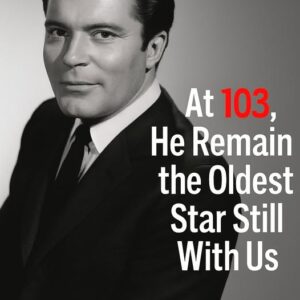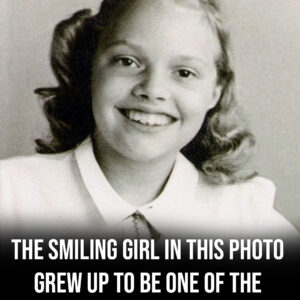
The friend had no family. She requested $6000 after being very ill. Needed that money but donated it to save her. She promised to repay me but disappeared. I heard she returned 9 years later. I almost fainted entering her house.
All my letters were carefully arranged on the table, unopened and preserved like sacred objects. My remarks, pleads, and attempts to check on her over the years—each envelope sealed, a witness to my impotence and confusion.
The living room walls were covered in images of us laughing at the beach, cooking late at night, and sitting cross-legged in her small kitchen planning a bright future.
Photos were fading yet well-arranged. I felt like I had entered a time capsule that preserved our friendship but left me with a thousand questions due to the thick dust on the frames.
I softly shouted her name, hoping she was home. Silence. A faint voice came from the rear room. Raspy, weak. I walked slowly along the tiny hallway, heart racing. She lay on a shabby couch, pale and frail, like life had stolen her vitality. After meeting me, her eyes brightened up and tears fell instantaneously.
A cough made her collapse when she tried to sit up. She said, “I always knew you’d come.” Anger turned to uncertainty. Why did she vanish? Why didn’t she tell me she was alive? Why did she keep all letters but never reply?
She gasped as she told me that she utilized my money for a life-saving procedure. But then she had difficulties that kept her bedridden for months.
One night, a trusted caregiver emptied her account, snatched her phone, and left. Penniless and unable to contact anyone, she drifted between hospitals and cheap hostels where generous strangers would take her in.
Her recovery was plagued by infections, vehicle accidents, and a stroke that left her largely paralyzed. My letters were the only proof that someone loved her enough to fight for her, she added. They were her hope on nights when death seemed near.
I stood dumbfounded. I spent years thinking she stole my money and destroyed our friendship. However, the truth was darker and sadder than I expected. I felt guilty for criticizing her for years. We cried until we couldn’t, sitting next to her and holding her chilly hand.
She promised to pay, but I chuckled through tears. I informed her, “You don’t owe me a penny.” “You owe me your life, and you paid in full by living.”
The evening was spent chatting. She told me about the nice nurse who let her sleep in a hospital storage closet when she was homeless. She told instances of strangers who gave her food or a place to stay, unaware of how much it meant. Despite years of poverty and disease, she lived.
I saw handwritten journals on a little shelf while we talked. Writing every day she could, she said. “It was the only thing that kept me sane,” she said. She let me read certain pages. They were direct and devastating. She wrote of missing our late-night conversations, ridiculous movie disputes, and aspirations of owning a café by the sea.
I felt like the ground changed when she spoke anything. She said that after a tough shelter night, she encountered a woman who recognized her from a missing persons notice I filed online years before.
That woman offered her some money and told her about a medical assistance program for homeless women. That suggestion helped her seek basic care and crawl back to stability. The woman was my cousin, whom I had told about my missing acquaintance but had ceased talking to.
Life had always been building a web around us, I realized. Our lives touched others, and theirs touched us in ways we couldn’t imagine. I believed in something more than coincidence when my cousin’s goodwill gave my friend hope to keep going.
I helped her clean the house for several days. We cleaned the walls, dusted everything, and ventilated the musty rooms. I carried her from room to room, propping her up in a blanketed chair while I worked since she was too weak to stand.
I made grilled cheese and tomato soup like we used to make together, and we laughed about how we burned a pot of pasta while dancing to old pop music.
One time, she asked me if I still wanted to open that seaside café. I told her I buried it under bills, work, and daily tiredness. Her sharp gaze surprised me for a frail person. “Promise to do it. Life is too brief to kill dreams.”
Next day, a social worker helped me enroll her in a home health monitoring program. She had twice-weekly clothing changes and vitals checked by a nurse. She slowly gained enough strength to sit up and walk with a walker. To feel useful again, she insisted on washing dishes and sweeping the floor.
One night, she gave me a tiny box. I received a gold bracelet with my initials. “I bought this with my first check after surgery, before everything went wrong. I gave it to you to say thanks. I kept it hidden for years to avoid losing it.”
Unable to speak. Though inexpensive, the bracelet was meaningful. I wore it every day after that to remember that love and loyalty can survive the darkest storms.
Months passed. She grew stronger. She smiled more as her cheeks grew. Mornings were spent outside drinking coffee and watching the sunrise. She told me about her youth, like how her mom braided her hair every morning before school and how she ran away to join the circus for a day before her father brought her home.
Morning came, and I found her wailing on the porch. She admitted feeling burdened. I had to stop my life for her, which she loathed. I told her she was wrong—helping her had renewed my purpose and reminded me of what mattered. She was clearly suffering from guilt. I knew she needed anticipation.
I proposed we collaborate on our café dream. In a notepad, we sketched ideas for the sign, dishes, and decorations with plants and antique books. We named it Second Chances Café. It suited us both.
My friend who owned a little beachfront property offered to rent it to us cheaply until we figured things out. I worked double shifts to save for renovations. Our neighbors donated seats, tables, and even an espresso machine after word spread. Everyone wanted to join something hopeful.
When we were almost open, she got sick again. She was hospitalized with a serious infection. Her coma lasted three days. I prayed with her and read her favorite journal passages. I feared I’d lost her forever.
She gazed at me with clear eyes like a lake when she woke up. She muttered, “Don’t stop,” smiling weakly. Open cafe. I’ll be there in spirit if not in person.”
Her remarks resonated with me. I finished the café with friends and strangers who became family. Our old photos and journal quotes were hung. A modest framed photo of her smiling was placed at the cash register on opening day as a silent tribute to the heart behind it all.
Besides coffee and pastries, the café became a welcoming haven for conversation and comfort. Every morning, regulars arrived. Travelers would stumble upon us and remain for hours. I’d tell them about Second Chances Café, its founder, and how generosity may spread unnoticed.
One bright afternoon, months after the grand opening, she startled everyone by stepping through the door alone with a cane. Everyone applauded in the café. She battled her way back to see our goal realized. She hugged me and whispered, “You did it. We succeeded.”
We held open mic evenings and community dinners to let people heal, connect, and share their stories at the café. We employed single parents, the elderly, and disabled individuals to help them reconstruct their lives like we did.
An older woman approached me while washing tables one night. Before hearing our story, she had lost trust in people. She gave me a tiny envelope with a donation and thanked me for giving her hope. I recognized then that the café was a lighthouse, not just a business.
A year after our opening, my friend’s health declined again. This time, she knew it was over. She made me vow to keep the café open, share our story, and give second chances. She died quietly one morning when I held her hand and the sun rose like it always did when we had coffee.
Kept my commitment. Second Chances Café remains open. The bracelet she gave me is near the cash register, and her notebooks are on display. The café founded on love, grief, and never giving up on someone you care about draws visitors from far and wide.
If this story touched you, please share it with someone who needs a reminder that second chances are possible—and frequently closer than you think—even when life seems hopeless. This post is for those who believe in kindness and true friendship.




